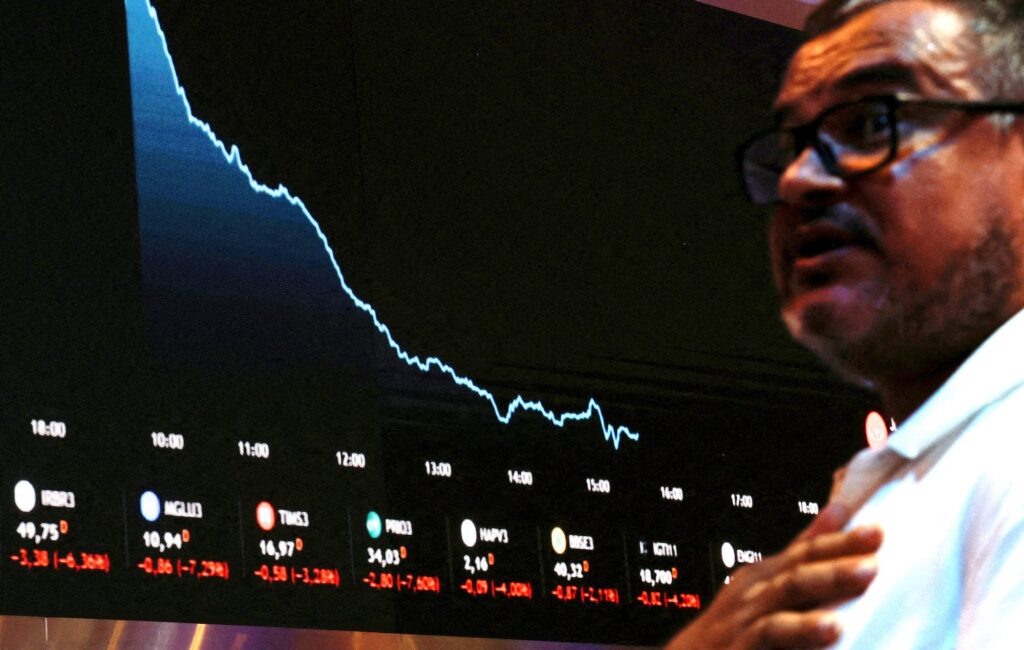Investors ‘moving away from equities’
40 Gulf IPOs had been expected
Steep declines in stock markets since President Donald Trump set out sweeping tariffs will almost certainly delay initial public offerings in the Gulf, analysts have told AGBI.
Markets around the world have tumbled since the US president announced his plans for import taxes last Wednesday. Saudi Arabia’s Tadawul All-Share Index had its biggest one-day fall since the 2008 financial crisis on Sunday. European shares crashed to a 16-month low on Monday.
“I would think IPOs would be delayed until this uncertainty abates,” said Scott Livermore, chief economist at Oxford Economics and an AGBI columnist.
Last year there were 53 IPOs in the Gulf region. So far this year, about 40 are planned. Thirty of these have been announced, four have been mandated and six have been reported.
Among the most anticipated is a potential offering by Etihad Airways, the Abu Dhabi-based national carrier. It had been expected to make a listing announcement as early as this month, Reuters reported.
“Given the drastic global market sell-off, investors are currently having a risk-off sentiment, moving away from equities and into safer assets,” said Vijay Valecha, chief investment officer at Dubai-based Century Financial.
“This could potentially dampen IPO prospects in the short term.”
In Saudi Arabia this year, three IPOs – Derayah Financial, Entaj and Umm Al Qura for Development and Construction – have raised more than $1 billion between them.
All three companies’ shares rose by 30 percent on their first day of trading, the maximum allowed. Those gains have since been wiped out; Entaj and Derayah are now trading at or below their IPO price of SAR46.75 and SAR30.55 respectively.
Wael Mahdi, CEO of Saudi consultancy Elevare360, said he expected IPO activity to “remain muted through 2025, with a potential recovery window beginning in Q4 2025 or Q1 2026 – contingent on improvements in market liquidity, oil price stability and global investor confidence”.
Gulf economies and spending plans are also affected by the sharp decline in oil prices, which have hit a four-year low since the tariffs were unveiled. That has raised concerns of slower global growth and even recession, affecting energy demand.
West Texas Intermediate benchmark crude oil prices have fallen by close to 15 percent since last week.
On average, Gulf Arab governments count on oil for more than half their revenue, which is why they have been working at different paces to diversify their economies.
That policy, reflected in Saudi Arabia’s Vision 2030 strategy, could help support IPOs in the longer term, according to Valecha.
“Firms backed by sovereign funds or governments often proceed with listings regardless of macroeconomic swings, leveraging state support and strategic significance,” he said.
Register now: It’s easy and free
AGBI registered members can access even more of our unique analysis and perspective on business and economics in the Middle East.
Why sign uP
Exclusive weekly email from our editor-in-chief
Personalised weekly emails for your preferred industry sectors
Read and download our insight packed white papers
Access to our mobile app
Prioritised access to live events
Already registered? Sign in
I’ll register later



